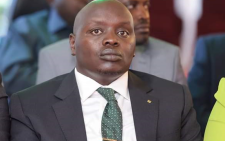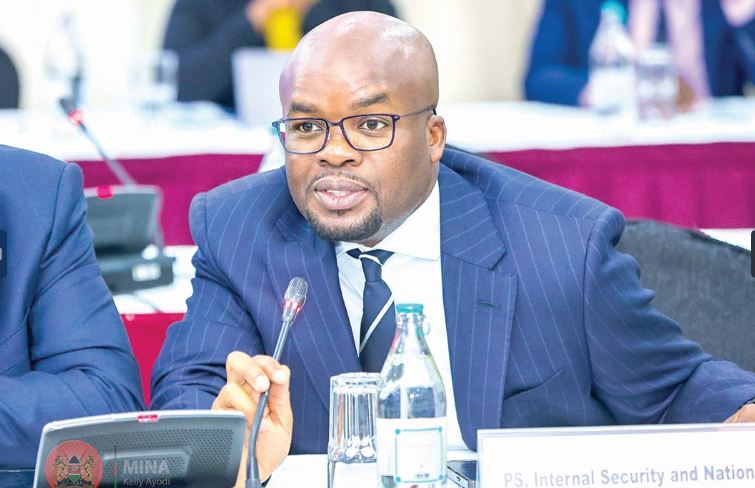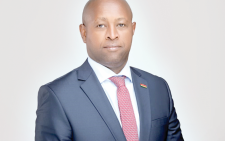Your university funding must fall. That is what brave members of the Gen-Z told President William Ruto on Sunday night during an audience about the crisis in the education sector.
The youth crowd – mostly comprising university funding model unrealistic, expensive and one that could lock thousands out of lecture rooms and rob them of their chances of studying the courses of their dreams.
In what is becoming his choice of engagement with Kenyans in the so-called Town Hall sessions, the president spent the better part of the evening fighting back serious criticism of the new funding model from a predominantly Generation Z audience.
As is the norm, the latest engagement, held at the Kenyatta International Convention Center (KICC), was moderated by none other than the president himself, who would invite and field questions from the gathering.
Model working
Ruto said though the vice-chancellors had assured him that the model was working as it enabled them to pay their staff and suppliers, it was not affordable to parents and students.
“But then I asked him, if it is working for the university, the university belongs to the students and the parents. The Vice Chancellors said that we need to do more explaining for the students to understand it so that is why I decided to call for this meeting,” Ruto said, opening the floor for questions.
But as the barrage of questions started raining from the audience, the president would find himself in tight situations, repeatedly stating thus; “I don’t know how to put it,” as he painstakingly attempted to respond to the issues raised by the Gen Zs.
Kennedy Otieno, the Secretary General of Kenya Methodist University in turn noted that despite the words written all over the platform where Ruto stood that fees had fallen, the opposite was the reality.
“I have experienced your leadership as the Eldoret North MP when people used to go to the streets to celebrate you and now as the president when people are going to the streets to demonstrate. There is a problem with the new funding model. You were misadvised. We must go back to the drawing board. What was so long with the old model that we could not amend it?
Migosi Marwa, the President of Mt Kenya University law campus asked why under the new model, the private university students are only given loans and not scholarships like their counterparts in the public universities yet they are also children from taxpayers.
No scholarships
Ruto responded saying that because he values those students in private universities, he has made public resources available to them as loans just the same way with those in public universities. The reason why he has not provided scholarships to them is because of non-payment of scholarship money in the past which put the universities in a lot of trouble.
Two newly appointed Cabinet Secretaries, Julius Ogamba (Education) and John Mbadi (National Treasury) were conspicuously missing from the audience notwithstanding the fact that the matter at hand touched on their respective dockets. Some Principal Secretaries and Vice Chancellors of several universities could however be spotted among the audience, but as silent listeners to the debate.
The president would make it clear from the very onset that he had invited the students so that they could have a conversation about education, “a most important subject,” he emphasized.
He stated that when he assumed office in 2022, 23 out of 40 public universities were insolvent because of the debt owed to them by the government amounting to almost Sh140 billion. Another Sh51 billion owed to private universities, he explained.
“Some of the universities could hardly pay salaries and suppliers. Those who were doing engineering and medicine courses that required supplies for practicals could not afford them and it was beginning to affect the quality of our education,” he said.
He added: “I have engaged stakeholders, I have held three meetings with the Vice Chancellors because I wanted to get feedback as to whether the model is working and whether it is sustainable.”
Critics of the NFM, argue that despite its promising objectives, the banding model puts students in categories beyond the reach of their financials.
Many students have been placed in Band 4, a category that includes households with incomes between Sh70,001 and Sh119,999, but for which the financial support provided by government, has proven insufficient given the current economic conditions.
“The challenges are further compounded by reports of misclassification, where extremely needy students have been incorrectly placed in Band 4, effectively denying them the financial assistance they require,” argues Prof Maurice Okoth of Moi University Eldoret.
Differentiated Unit Cost
At some point, the president would be forced to ask whether there was any VC among the audience to explain the difference between the old Differentiated Unit Cost funding model and the new model.
“Don’t worry about kusalimia. Sisi tumezoea kusalimiwa kila siku,” Ruto assured as he invited the VC in question to respond. Alupe University VC Peter Barasa would however be met with jeers from the Gen Zs as he revealed that he was part of the presidential working party that recommended the model, forcing Ruto to cut him short in order to calm down the agitated crowd.
Felix Ochieng, the President, the Daystar University student body told Ruto that the variables used to gauge the financing needs of a student may not reflect the needs of the students because they could have been sponsored in their lower learning levels and the appeals are not always successful.
The President hesitated before responding; “Let me tell you and this is something that you really know,, eh,, I know aaah, I don’t know how to put it. Only 10 per cent of the poor children make it to university. It is as blunt as that and this is one hell of a conversation we must have as a country. We will continue to improve on the model, it is not perfect but it is 95 per cent to the right direction and we will keep on improving it.”
“Let’s give him a chance, we are intellectuals and as intellectuals, we listen to reason. You can challenge what the professor is saying the same way you are challenging me,” Ruto said, jumping to the VC’s rescue.
Vincent Muchanga a law student at Chuka University asked; “Can the loans be issued as grants, can the repayment grace period be increased and can the interest be reduced?”
To which Ruto responded, saying that in instances where a student genuinely does not have money to pay for a loan, the grace period should be looked into adding that no student should be forced to pay until they have a job.
On the question of interest charged on loans, Ruto ordered the Higher Education Loans Board (HELB) to retain the current rate.
Joseph Mwangi, a lending officer at HELB who was present at the meeting said that for every Sh100 in a loan, the Board recovers only Sh48 warning that the fund may be depleted in 30 years if the interest rate is maintained.
Ruto said the old model was almost destroying university education, as it assumed all the courses were the same and that the government could afford the 80 per cent disbursements to all students.
“Nothing is new because the household contribution, the scholarships and loans were there in the old model and we have retained them here. The only difference is that the new model is seeking to assist the vulnerable students who were marginalised in the old model. I have been severally accused of forcing the rich to do things for the poor in the society, I don’t know how to put it,” Ruto said.





















